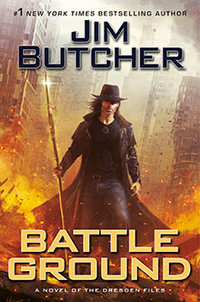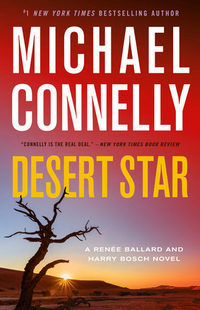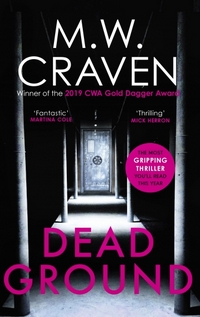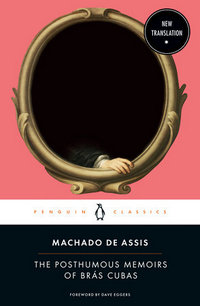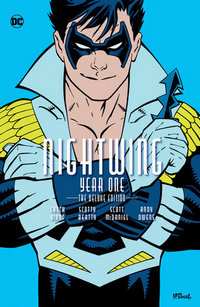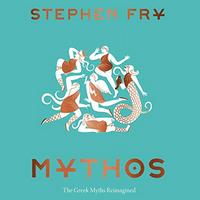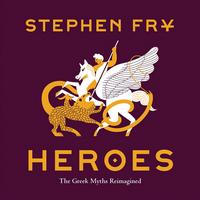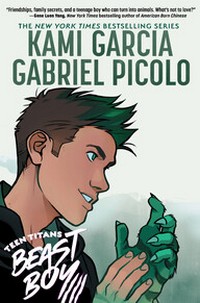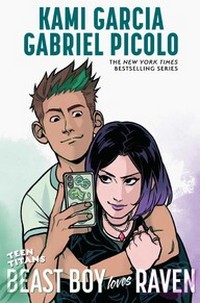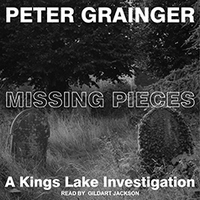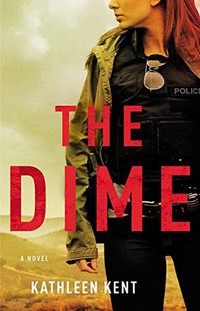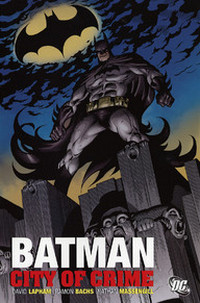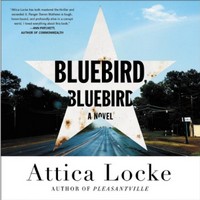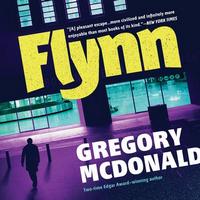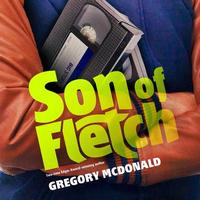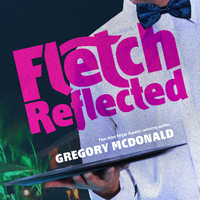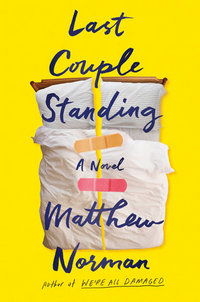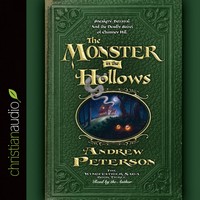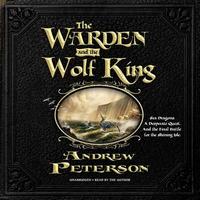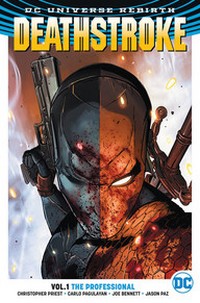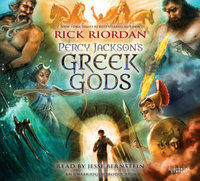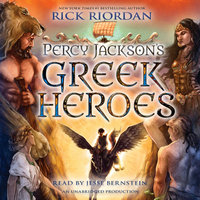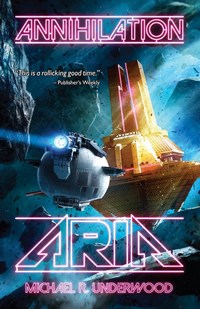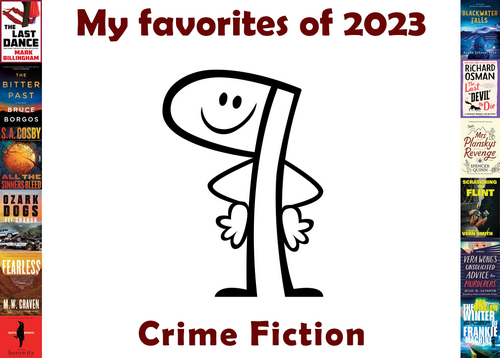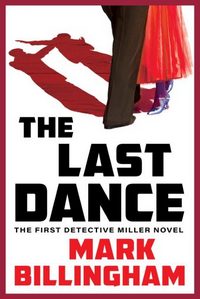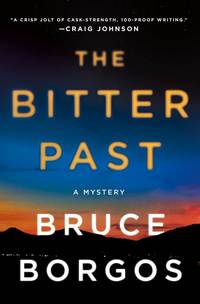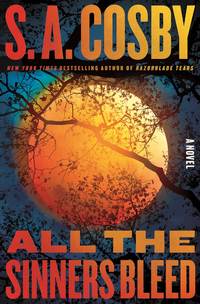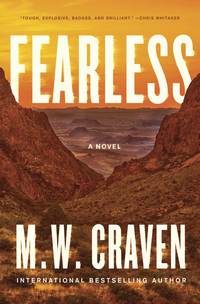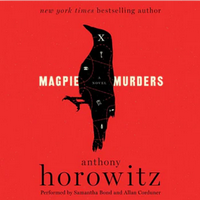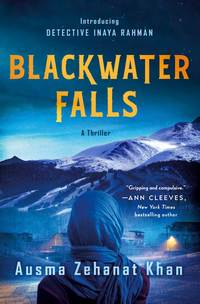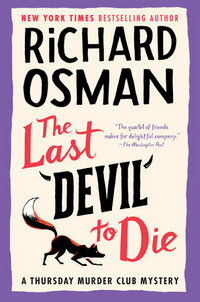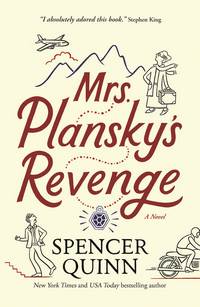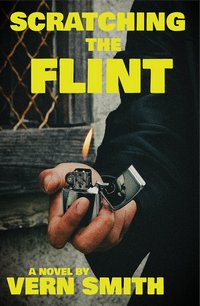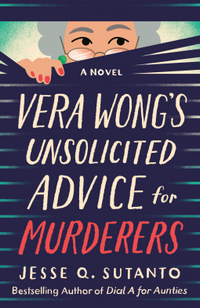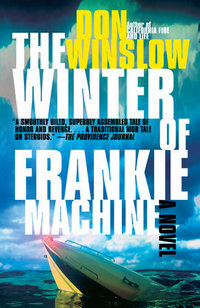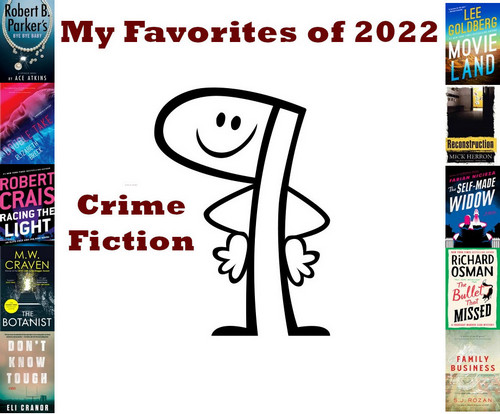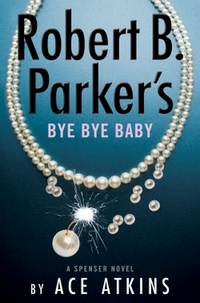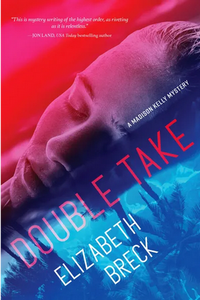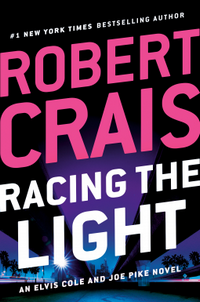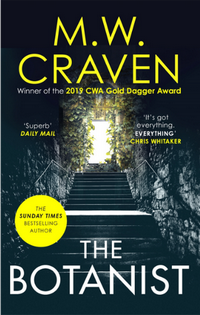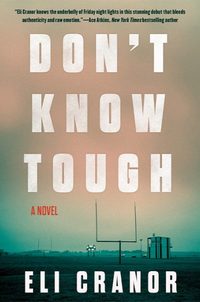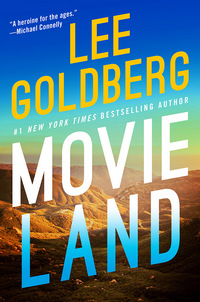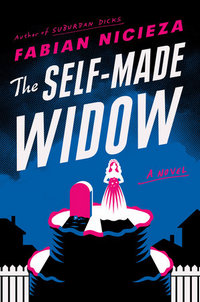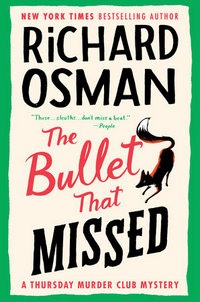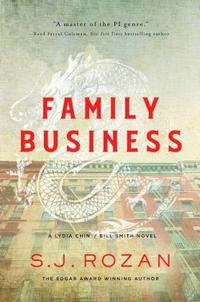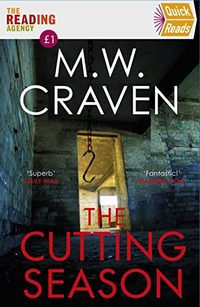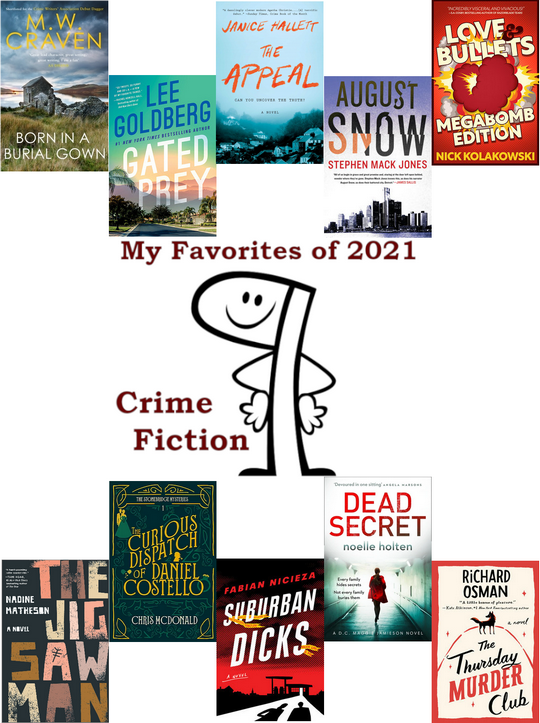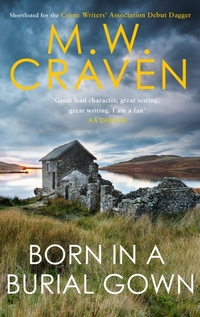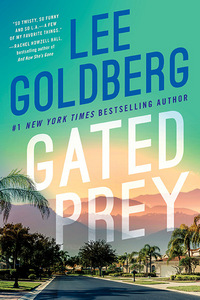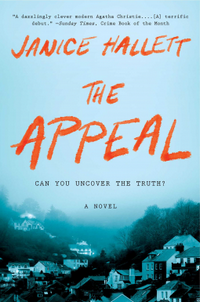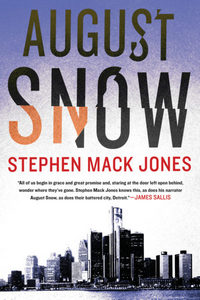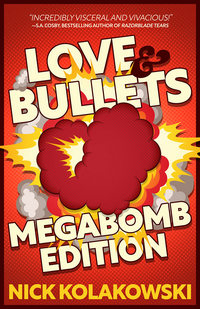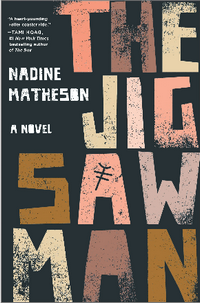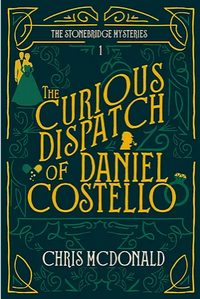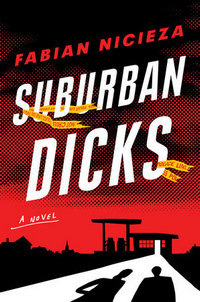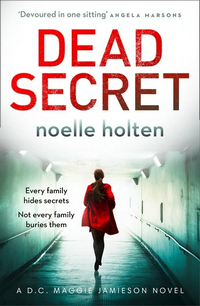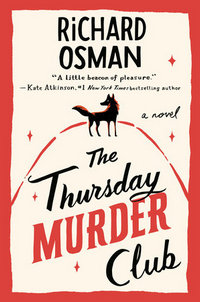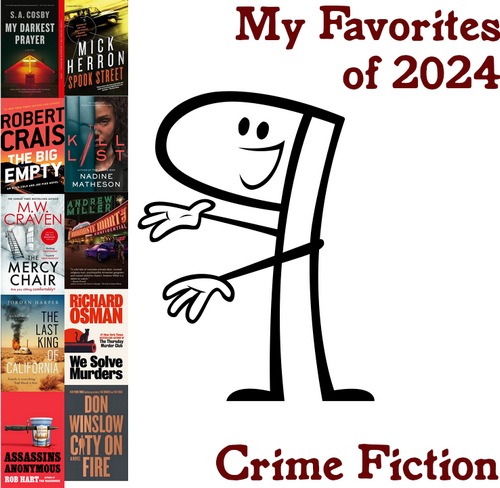
Finally, we’re at the end of my 2024 wrap-up. Thanks for sticking with me for so long! (assuming you have). I read /0 books I put in the category of “Mystery/Detective Fiction/Crime Fiction/Thriller” last year (and there are a couple of multi-genre novels that could beef that number up a bit), 33% of my reading last year. So I have to consider it apart from everything else when I put together my Favorites Lists, or just about everything else would get ignored. Even if I went with a Top 20 instead of a Favorite 10, maybe 5 books from the previous lists would’ve made it along with all of these. Maybe.
Once again, I’ll note that I limit my lists to things I read for the first time. Yes, there are some names on here that have been on a couple of these lately. Under half the list. Er, maybe half the list. I don’t want to look. No more than 50%. Most of those names will likely show up in the years to come. I might have to retire some authors from consideration.
As always, re-reads don’t count for these lists.
(in alphabetical order by author)
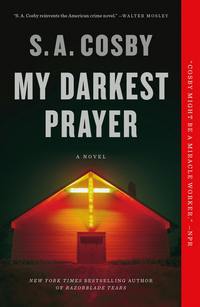 My Darkest Prayer
My Darkest Prayer
by S.A. Cosby
Is this as good as Cosby’s later works? No. But it’s dynamite–and you can see (especially looking back) the potential in this gritty and grim work. (and what is as good as his later works, anyway?) Nathan Waymaker is a former Marine and an ex-sheriff’s deputy (his resignation is pretty dramatic). He operates as an unofficial fixer and investigator for various people in the community–when a notable local pastor is killed. His church leadership wants answers that the sheriff’s department doesn’t seem to want to find.
So Nathan starts looking. And finds a lot of things he wishes he didn’t. And the pastor’s attractive daughter (which he’s pretty glad about). But mostly he finds things he doesn’t–hopefully he can find a way out with his life intact.

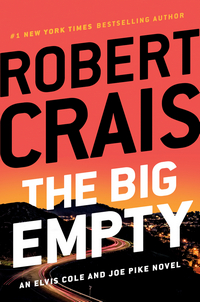 The Big Empty
The Big Empty
by Robert Crais
My original post
Sure, there’s a little recency bias going on here (I just read this two-and-a-half weeks ago), but I’m pretty sure it’d end up on this list no matter when I read it. It’s Crais at the top of his game. Pike as an avenging angel and would-be protector of the weak. Elvis making friends and enemies wherever he goes. Chen coming through with the goods when he needs to (while being whiny and offensive). The case doesn’t go where anyone thinks it will. And the prose is so sharp and smooth that you don’t want to finish the book.

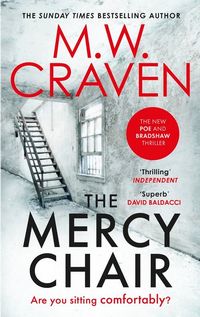 The Mercy Chair
The Mercy Chair
by M.W. Craven
My original post
If I do retire something from this list, it’ll likely be Craven and his Poe and Tilly series. But I don’t see that happening because I love talking about them so much.
This book is dark. Which is saying something for Craven. It’s also sweet. And funny. Buuuuut, mostly it’s dark.
We start off with Poe in a therapy session, of all things. And he starts describing the ins and outs of his latest case–with all the strange twists and turns it takes him along.
There’s also someone shadowing Poe during the investigation as a performance audit (and that doesn’t go well for anyone). Poe determines quickly that the killer he’s has some major baggage–physical and spiritual abuse, likely some sexual abuse. And the way this is all discovered is pretty nasty. The more Poe and Tilly uncover the worse it seems and the need for Poe to get some therapy becomes more and more clear.
But the book never stops being entertaining or suspenseful. The characters are who we’ve come to know and love (or at least enjoy). They may be rough shape and pushed to their limit. But they’re Poe, Tilly, and Estelle.
Craven is the best around, this is just more proof.

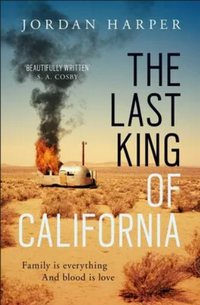 The Last King of California
The Last King of California
This is just a gorgeously written novel. The fact that it’s filled with criminals, low-lifes, and people more descipible than that doesn’t change that. Luke Crosswhite drops out of college and returns to his family’s home to live with his aunt and uncle, the closest thing he has to parents since his father is doing time for a murder that Luke saw him commit. Luke’s given up on going straight, he’s essentially resigned to taking up the family business.
He picked a bad time for it, his family is under attack from a bloodthirsty boss who wants to take over their territory and has essentially declared war on all criminals in their part of the state.
And, well, things get worse from there.

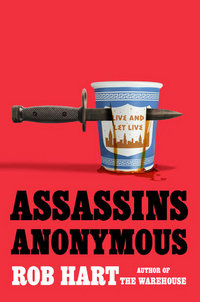 Assassins Anonymous
Assassins Anonymous
by Rob Hart
My original post
Action. Comedy. Heart. This has it. Mark (and his cat) are on a global hunt to find out who sent a Russian hitman into his 12-Step meeting to kill him. It should be noted (as you can guess from the title) that this meeting is of Assassins Anonymous. Not a smart place to try to kill people, it likely won’t go well for you.
Mark has been out of the life for a year or so. Why does someone want him dead? How can he stop them while not killing anyone, maintaining his “sobriety”?
Hart does so many things well in this book, I can’t wait for the promised sequel so I can spend even more with Mark and the rest of his support group.

 Spook Street
Spook Street
by Mick Herron
My original post
What can one say about Mick Herron and the Slough House series that countless others haven’t before–and better? This was harrowing and haunting, with twists I didn’t see coming. And I really can’t do better than that.

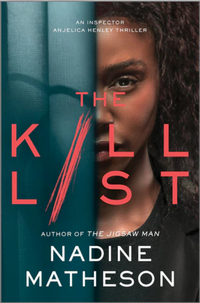 The Kill List
The Kill List
After a little stumble in book 2 of this series, Matheson comes back on fire with this entry.
25 years ago, one of Anjelica Henley’s friends was killed by a serial killer, who was arrested by the man who became her mentor when she joined the police. Then the convictions were overturned, her mentor was found to have corrupted evidence, and the killings have started up again.
It’s up to Henley and her team to stop them and get the right person arrested this time.
There’s heart-breaking character moments–related to and separate from–this case. The mystery is beyond twisty. Matheson handles all of it with confidence and ease. It was just a pleasure from start to finish.

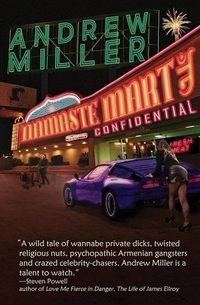 Namaste Mart Confidential
Namaste Mart Confidential
My original post
Who hasn’t read too many noir novels about amateur PIs who are also grocery store clerks trying to make it in stand-up or writing to investigate the disappearance of a lingerie store employee? You might as well try one more.
What doesn’t this book have, really? First off—and it’s easy to forget this, but you shouldn’t—it’s noir. Then you have a slice of L.A. life in 2013, and boy does it feel like it. There’s some comedy. There’s some satire. There’s commentary on the rise (and growing acceptance, it seems) of polygamous LDS groups. There’s some drama. There’s some over-the-top action movie-style gunfights. There’s a splash of politics. There’s more than a little commentary on the nature of celebrity. There’s some actual sweetness through one of the smaller arcs. You’ve got Armenian mobsters. Ex-actors turned business executives. Ex-actors turned artists. Grocery store clerks and very odd customers (just that part of the novel alone could be turned into a decent sitcom). A strange Scientology-esque group.
But the important thing to know going in—it all works. This jumble of seemingly incompatible ideas/topics that Miller brings to the table fit together in a way that feels natural. It’s like one of those cooking competition shows where the contestants are handed a bunch of ingredients that no one in their right mind should put together and they make something that gets that gets the approval of experienced chefs and restauranteurs. Miller ain’t getting chopped for this meal.

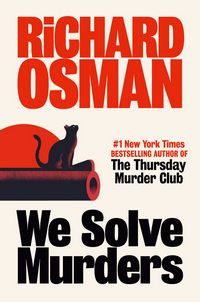 We Solve Murders
We Solve Murders
This was just so good, really. At this point, it’s not quite as good as Osman’s other work—primarily because nothing had the emotional weight that the gang at Cooper’s Chase seems to find in their adventures. But the potential is there for this series to equal it. And, really, considering the tone of this one, that kind of punch might have felt out of place or contrived.
It might not have had the emotional weight, but the comedy was stronger (and more obvious). I’m not going to complain about that.
Osman is on a heckuva streak. I hope it continues.

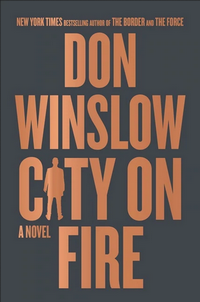 City on Fire
City on Fire
by Don Winslow
Don Winslow starts the trilogy that marks his retirement by giving us a retelling of The Iliad set in warring mob families in Providence, RI in 1986. As one does.
I was sucked into this so much that I forgot it was The Iliad and couldn’t understand why one group fell for such an obvious trap (and boy, did I feel dumb when it clicked for me). That’s part of the magic of this book, you don’t realize it’s a story you know that well because Winslow is just that good.
This broke my heart, it made me angry, and it got me talking back to the characters who were doing reckless, impetuous things driven by hubris and misplaced loyalty. And I wanted more. (It’s a good thing there are two more books in the series I should’ve read by now)
Stunningly good work.

A few books that almost made this list, and I want to be sure to mention one more time:
Nobody’s Hero by MW Craven (My original post); The Late Lord Thorpe by Peter Grainger, Gildart Jackson (Narrator); Another Girl by Peter Grainger, Gildart Jackson (Narrator) (My original post); Smoke Kings by Jahmal Mayfield; and Everyone in My Family Has Killed Someone by Benjamin Stevenson.
![]()





